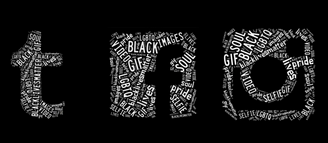![The Twitter feed for the #BlackOutDay tag shows many instances of African Americans embracing their identities. [Twitter]](http://www.jstudentboard.com/reporter/wp-content/uploads/2015/03/JSR_March14_BlackOutDay-300x176.jpg)
#BlackOutDay, organized by Tumblr users nukirk.digi.tal and expect-the-greatest, called for Tumblr users to exclusively post and reblog posts about African Americans for 24 hours as a way of recognizing Black pride and promoting solidarity. The aim was to “show that Black History is happening today, right now,” according to nukirk.digi.tal, the co-creator of the movement responsible for artwork, promotions, and media coordination.
Although the movement was promoted for only five days, the concept spread rapidly and received a massive response. Selfies uploaded by African Americans gained considerable recognition, and numerous posts embraced Black appearance and heritage. One post by Tumblr user chickenwingdip stated, “[T]his blackout idea is probably the best idea of this website so far…[you] all are so so beautiful…”
“The goal of [#BlackOutDay] is basically to make Black people feel empowered,” explained nukirk.digi.tal in an interview with JSR. “Usually on Tumblr, we would see eurocentric values and eurocentric images of white people. We would see Black celebrities or high-profile people, but we don’t see the daily us.”
He continued, “Our motivation is to promote love and more self-esteem… basically to show us you so that we know you’re out there, and we can tell you how awesome you are.”
#BlackOutDay serves to empower the African American community. Influenced by the widely positive feedback, African Americans on Tumblr have shared their stories about self-love and celebrating their identities.
“I really love the idea of #BlackOutDay, and the response was largely positive as far I saw,” said Tumblr user swoobats, a participant in the movement.
“Seeing everyone’s photos going around and all the positive responses was something so totally wonderful because it’s not really something I’ve ever experienced before; it’s so rare to have such a large scale appreciation of Black people and Black beauty that it really almost brought me to tears,” she said in an interview with JSR.
“I always was unsure of myself growing up,” swoobats continued, “because I was nothing like what the societal ideal of beauty was, going off of what I was seeing in the media… So this whole thing was just so wonderful to me, and I want to see it continue on a larger scale!”
With mainstream media so focused on white people, it is a daily struggle for minorities to find relatable representation. In addition to #BlackOutDay, bloggers and vloggers such as Franchesca Ramsey and Phil Yu have taken initiative to capture their own representation in modern media. This independent, self-reliant approach is what #BlackOutDay strives to embrace.
“Tumblr’s response has been overly positive, and the fact that Tumblr’s staff acknowledged [#BlackOutDay] was a small step,” said nukirk.digi.tal to JSR, referring to the popularity of the #BlackOutDay selfies. Many of them gained more than 100,000 notes.
“People see that they can start their own movement… We don’t have to depend on mainstream media for our narrative,” he added. “The mainstream media came to us, and they asked us what this event is about, rather than asking white people… and it’s important that we control the narrative. By controlling it, we were able to do this amazing thing today.”
#BlackOutDay was successful largely because of the resounding need for better representation of minorities in modern media, and it demonstrates how recognition in media can positively influence self-esteem and identity.
Inspired by the movement, Asian Americans have taken a step forward with their own hashtag, #Asianinvasion. Take a stand and embrace your identity by joining the movement and using the hashtag on May 8!

